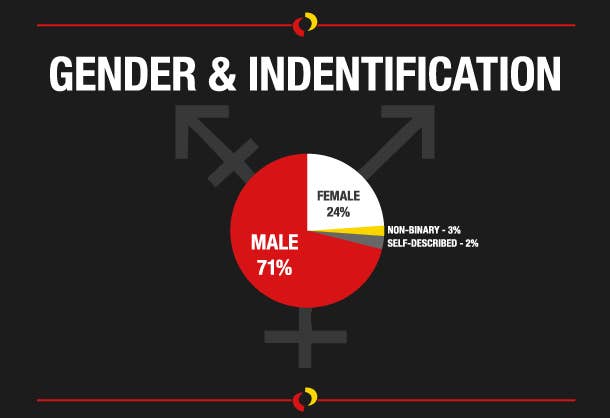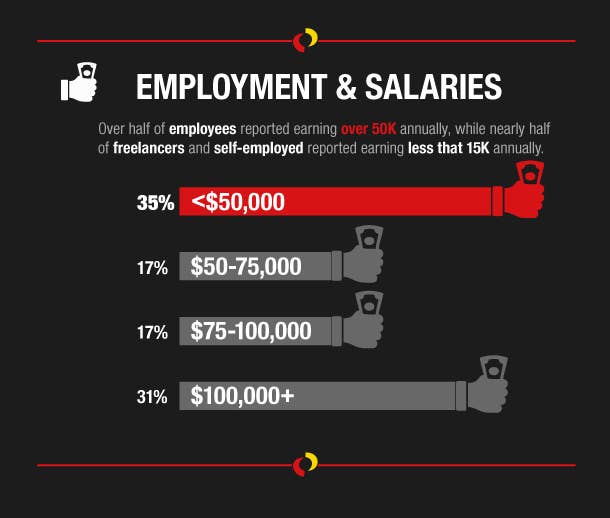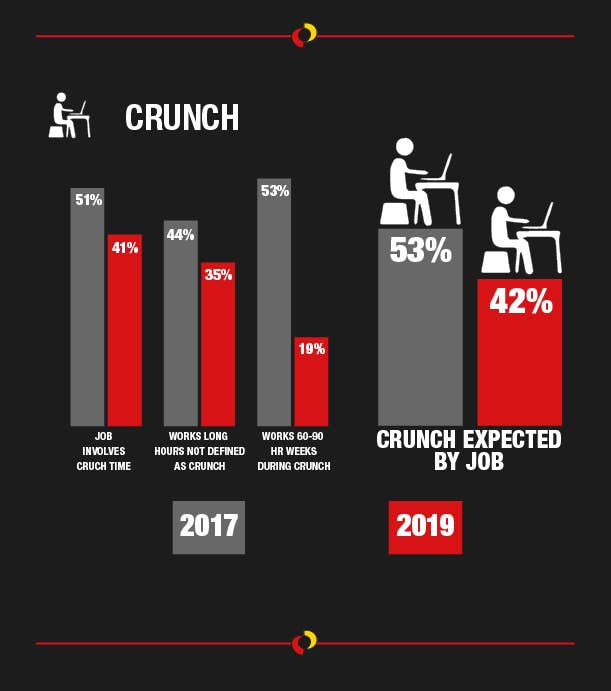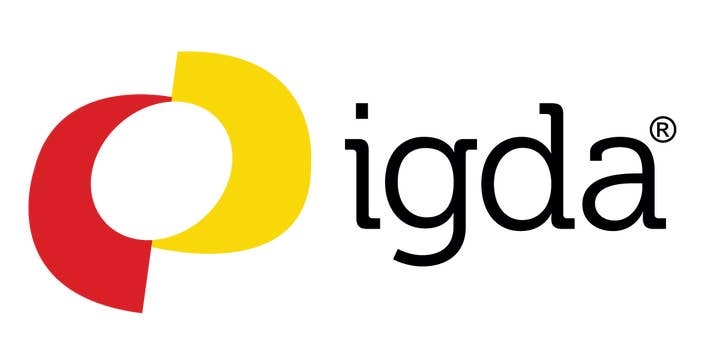The industry is becoming more diverse, and more developers support inclusion efforts
IGDA developer survey: 85% of developers said that diversity in the games industry was important
The IGDA has released the results of the 2019 Developer Satisfaction Survey, which showed growing industry support for diversity initiatives from the last survey in 2017.
1116 people were surveyed, most of whom were primarily game developers, though others were included who make games as a small portion of their work or who work in roles supportive of game creation. The full survey can be found here.
Of those surveyed, the demographic breakdown showed a majority of North American participants (60%) alongside smaller groups of respondents in Europe (20%), Australia and Oceania (8%), Asia (8%), South and Central America and the Caribbean (4%) and Africa (1%). Respondents were mostly male (71%) and white (81%), and 79% identified as heterosexual. 28% reported having a disability, with the most common specified being a mental illness; the next most common was visual impairment.
Though the results of the survey paint a not-especially-diverse picture of the industry (or at least, a largely North American-representative portion of the industry), IGDA notes that representation of women in the industry has increased in recent years to 24%. Additionally, the survey indicated that the overall average age of game developers is slowly increasing, suggesting that developers feel secure staying in the industry for longer than in the past.

Furthermore, more developers feel that diversity is important and support efforts to promote it. 83% said they felt diversity in the workplace was very or somewhat important, and 85% said the same for diversity in the games industry as a whole. Both of those numbers are up from past years, with responses at 63% and 66%, respectively, in 2015. Additionally, 57% said they felt that the industry had increased in diversity -- only 3% said they felt the industry was becoming less diverse, a number that's been consistent in surveys over the last three years.
IGDA asked developers about various workplace policies toward increasing diversity and equality, and 8% of respondents said their studio had none of the policies listed (down from 14% in 2017). Policies included a "general non-discrimination policy" (which 71% said their studio had), an "equal-opportunity hiring policy" (61%), and a policy prohibiting sexual harassment (64%). Additionally, 21% said their workplace had a safe space policy, and 16% said they had a retention measurement process.
However, only 59% of respondents said they felt the policies in place were adequately enforced. In fact, 49% said they had experienced some kind of workplace inequity directed at themselves, while 64% said they had perceived inequity toward others.
It's worth noting that the wording on this question was different from the wording used in the GDC industry survey published last week, which asked about diversity and inclusion initiatives (not just basic policies preventing non-discrimination) and indicated that over one-fourth of developers were working at studios with no such initiatives.
One shift from past surveys was in what developers felt was most important to the growth and success of the industry. In 2017, the top response was "advancement in game design," but this year only 58% said it was important. Now, the top response is "more diversity in game content," chosen by 61% of respondents.
Other changes from past years surrounded concerns about outside perspectives, with 38% feeling that society had a negative few of the games industry. When asked why they felt this way, the response "perceived link to obesity" received less support this year, but all other factors were selected with a higher frequency. This includes the most popular response, "working conditions" (73%), sexism among gamers (72%), sexism in games (57%), and other issues surrounding racism, sexism, perceived links to violence, and lack of diversity.

The IGDA survey also looked at working conditions and compensation. 65% of those who were involved in making games for pay said that they made over $50,000 a year, with 17% reporting making between $75,000 and $100,000 per year.
However, 34% said they received no extra compensation for overtime or crunch. And of those who did receive compensation, 33% said it came in the form of meals or future time off. Only 8% said they received paid overtime. And 42% said that crunch was expected at their workplace, with 36% saying they were in crunch more than twice in the last two years, 19% reporting working between 60 and 69 hours in a week during crunch time, and 13% working over 70 hours in a week as crunch.
That said, crunch rates appear to have decreased, per the IGDA. Looking at regular work schedules, 54% said they worked between 40 and 44 hours per week on a regular schedule, while 14% said between 45 and 49 hours was normal, and 5% saying between 50 and 59 hours was an average week. 41% said their jobs involved crunch time, which is down from 51% who said the same in 2017. There was also a decrease in those reporting working longer or extended hours who didn't refer to it as crunch -- down to 35% from 44% in 2017.
Finally, the IGDA survey breaks out a section specifically for freelancers, who reported much lower pay and some other concerning working conditions. 42% of freelancers reported earning less than $15,000 per year, while 33% earned between $15,000 and $50,000. Only 25% made more than $50,000 in a year.
And among freelancers, 21% said they took no time off last year for sickness, and 43% took less than one week off per year. 19% of freelancers said they received no credit for their contribution to a game's creation.


